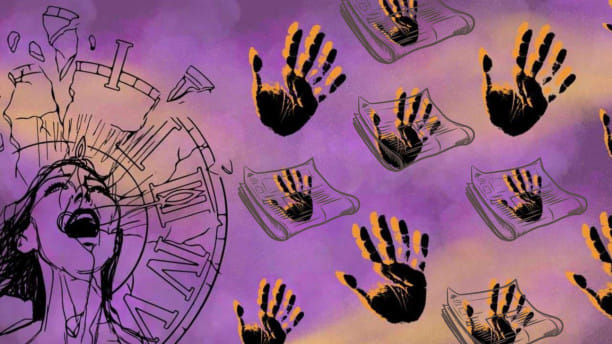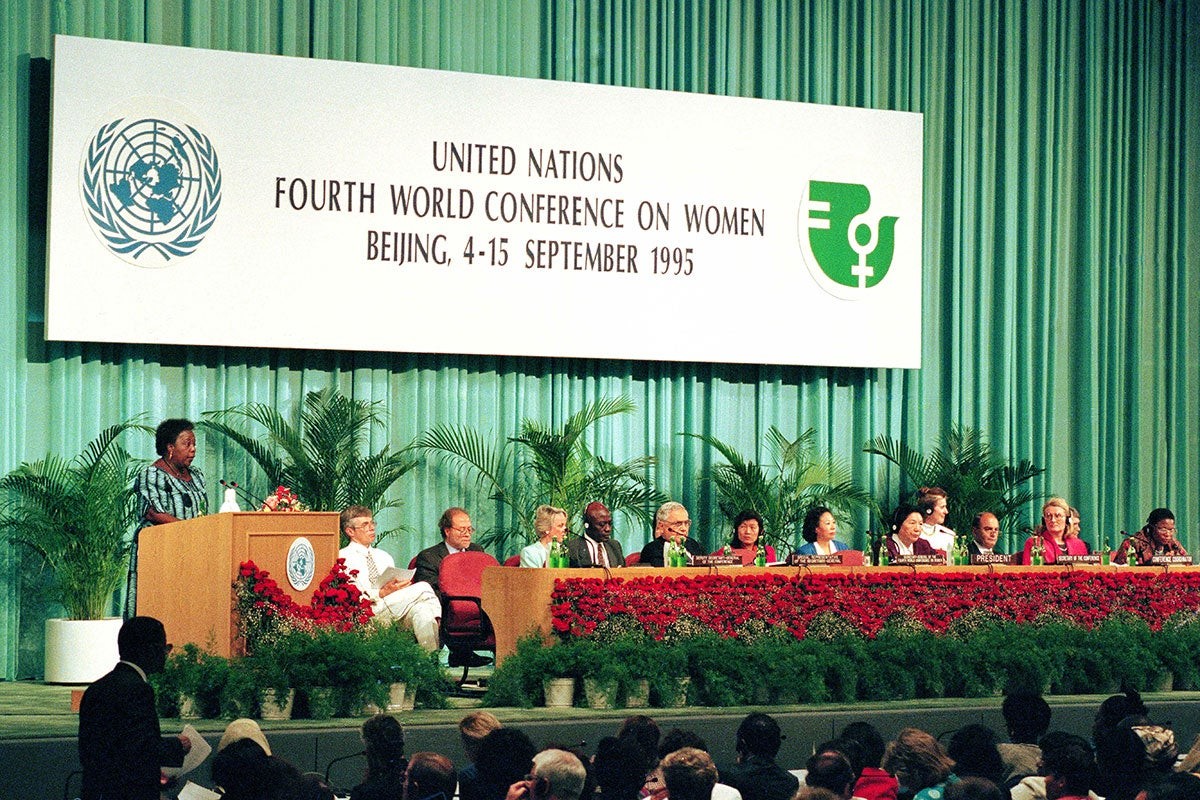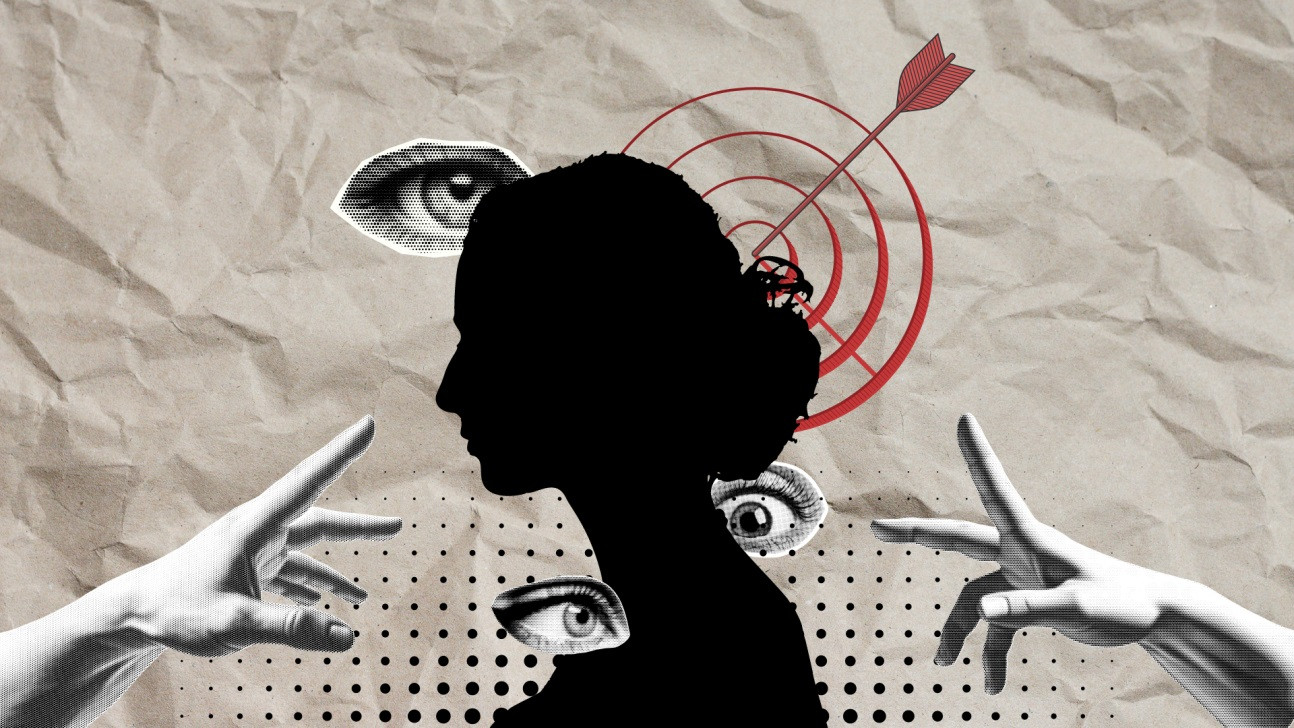Have those in power failed Bangladesh's women?

The slogan of this year's International Women's Day is about ensuring rights, equality, and empowerment for all women and girls. It's an important and necessary call. However, as Bangladeshis, if we want to achieve this, a simple question must be asked: even though we have had women in the highest positions of political leadership in the country for decades, why are our women still facing oppression, violence, and discrimination?
The reality is that although women have held leadership positions for many years, their politics have not necessarily been for women. They participated in a political structure—built on aggression and the suppression of dissent—that is deeply patriarchal. The politics they have practised has not been about transforming these structures but rather operating within them, often in ways that reinforce the very systems that marginalise women. They have been assessed in relation to their male family members—father, husband or other male relatives in power once—rather than as independent political figures. Simply having a woman in the highest office does not automatically lead to gender equality, nor does it ensure the rights or empowerment of all women.
True empowerment requires a fundamental restructuring of power itself, where women can not only participate in politics but also assume decision-making roles that influence governance, policymaking, and the direction in which the country is heading. Participation alone is not enough. Women must have the authority to lead, make decisions, and shape the structures that govern society. Without that, their presence in leadership remains largely symbolic.
However, even before reaching those leadership roles, women in Bangladesh face deep structural barriers. Women who enter this space often find themselves forced to conform to the set rules, which are often imposed unofficially. And when they try to change them, they face backlash. The political system, despite having women at the top for many years, has remained male-dominated in its norms, expectations, and informal rules.
Economically too, women remain disadvantaged. A political career requires resources—money, network, influence. But women, even when they earn, often do not have full control over their income. Their inheritance rights remain unequal and their financial dependency on male relatives limits their ability to operate independently in politics. In the Gender Parity Index of 2024, Bangladesh remains at a low rank in terms of economic equality. Women's participation in the workforce has either stagnated or declined, and the income gap between men and women has widened significantly. This economic disparity directly impacts political participation. If women do not have financial independence, how can they sustain themselves in politics? How can they fund campaigns, build networks, or take leadership roles? Politics, at the end of the day, is about resources. And when resources are concentrated in the hands of men, so is power.
This brings us to the question of safety. Why, despite decades of women holding power, have we not been able to ensure basic security for women? The answer lies in the deeper cultural structures that shape our society. Women are still perceived through a patriarchal lens, either as possessions or as objects of desire. This creates two simultaneous realities: women are seen as something that belongs to men, much like a piece of land or property, and at the same time, they are objectified in a way that makes them vulnerable to violence. As a result, when a woman is sexually harassed or assaulted, the blame often falls on her rather than on the perpetrator. The system does not protect her and in many cases, actively works against her. That is why gender-based violence never seems to decrease. It is not simply a matter of law enforcement or governance, but of how society constructs women's roles and rights.
This brings me to something I have been feeling strongly about, particularly in the aftermath of the July uprising. Over the past few months, we have seen a visible spike in misogyny, not just in isolated incidents but on a mass scale. And I don't think this is a coincidence. During the uprising, women did not just participate—they led. They asserted themselves with political agency and took on leadership roles in ways that unsettled the status quo. At the beginning, much like in many political movements, women were strategically placed at the front—either for media attention, as a protective barrier against police violence, or to symbolise the moral legitimacy of the protests. But, as the movement grew, women were no longer just participants—they became decision-makers, organisers, and leaders in their own right. And that has terrified the existing political structure.
What we are seeing now—the targeted harassment of women, the organised misinformation campaigns, the attacks on women activists—is not random. It is a backlash. There is fear among those who have long controlled power, or are aspiring to get to power without affecting the status quo—fear that this new wave of women in leadership is not just symbolic, but real. That is why they are being targeted, both online and offline. And these attacks are coming from multiple directions, from groups with vested interests that will be destroyed if women vote en masse in elections. And that is because when women take power—not just as figureheads but with real agency—it threatens the very foundation of patriarchal control over politics.
Despite decades of so-called women leadership, real equality has remained out of our reach. That's because true equality can come only by dismantling the structures that keep women marginalised. It means economic independence, legal rights, safety, and a political culture that does not force women to conform to a system built by and for men. Until these changes happen, the struggle for women's rights and empowerment will continue, regardless of how many women occupy the highest offices in the country.
Dr Samina Luthfa teaches at the Department of Sociology of Dhaka University.
Views expressed in this article are the author's own.
Follow The Daily Star Opinion on Facebook for the latest opinions, commentaries and analyses by experts and professionals. To contribute your article or letter to The Daily Star Opinion, see our guidelines for submission.



 For all latest news, follow The Daily Star's Google News channel.
For all latest news, follow The Daily Star's Google News channel. 


Comments